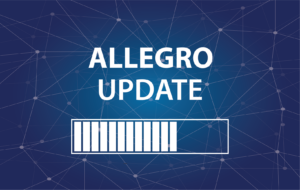
FTC Proposed Rule on Auto Sales and Its Impact on Lenders
In June of last year, the Federal Trade Commission submitted a proposed rule “to prohibit motor vehicle dealers from making certain misrepresentations in the course of selling, leasing, or arranging financing for motor vehicles.”[1] Pulling authority from the Dodd-Frank Wall Street and Consumer Protection Act[2], the FTC’s proposal seeks to alleviate several stress points in the customers purchase experience: full disclosure of car price and add-on costs in all customer interactions, customer acknowledgment and approval of add-ons included in the deal, and diligent recordkeeping.
Disclosure Practices
The proposed rule would require auto dealers to list the true price of each asset in all marketing collateral, e.g., media advertisements, website listings, social media, emails to prospect clients, etc. This price is not allowed to change if unexpected factors should affect it. Any price misrepresentation could result in an unfair, deceptive, or abusive act or practice (UDAAP) violation and the dealer may be subject to legal charges should the client take action. Auto dealers would also need to provide each client with a detailed list of all add-ons offered and the prices associated with them. Dealers would also be required to provide the total purchase cost of the vehicle in cash without any optional add-ons or financing methods.
Add-on Approvals
The ruling seeks to ban the addition of add-ons that provide no consumer benefit and to require written and signed customer acknowledgment indicating their refusal to purchase add-ons with their vehicle. Throughout the entire customer buying experience, the sales representatives need to provide a written document signed and dated by the consumer affirming that they’ve been appropriately informed of all add-on possibilities and prices and are electing to decline their inclusion in the purchase.
Furthermore, a dealer would need to provide the client with a total itemized price for both financed and non-financed options that either include or exclude, depending on the customers’ elections, individual add-on pricings. Because of difficulties in ascertaining if certain add-ons provide consumer benefits, the FTC has reached out to dealers and the public for help on a more concise system of clarification.
Diligent Recordkeeping
The proposed rule would require auto dealerships to keep records of all advertising material, financing information, and add-on lists for each vehicle. This has the potential to place a strain on record management systems and may increase the amount of time required to process each vehicle. Any public instance that displays the vehicle’s price and information will need to be documented and stored for a period of 24 months.
This condition was created with the intent to improve deal transparency with clients should a discrepancy or misrepresentation claim be filed against the dealership.
Lending Ramifications
Due to the Holder in Due Course Rule, customers who leverage claims against dealers that violate the ruling can assert these claims against lenders and any purchaser of the credit contract.[3] This may place the burden of responsibility on the financial institution in the event of disputes, even if the dealer was the offender. This has the potential to create a relationship of distrust between dealerships and financial institutions and could ultimately hinder loan approvals.
Industry Response
The proposed rule has been met with considerable opposition from industry thought leaders. In response to the proposal, the National Automotive Dealer’s Association (NADA) submitted a robust comment during the open public comment period which closed on September 12, 2022. In their comment they addressed that the proposed rule will “inject massive costs into the auto retailing process, greatly extend transaction times, greatly confuse consumers, and impede efficiencies aided by technological innovations.”[4]
The NADA also released a statement after their request to extend the public comment period was denied. NADA President and CEO Mike Stanton outlined what the NADA anticipates may be the results of this ruling should it be passed: “This proposed rule would cause great harm to consumers by significantly extending transaction times, making the customer experience much more complex and inefficient, and increasing prices.”[5]
In addition, on September 12, 2022, the American Financial Services Association and the Consumer Bankers Association delivered a join letter to the Secretary of the FTC detailing changes they would like to see made to the ruling before implementation:
- The Rule’s definition of “Dealer” should be clarified to avoid an overbroad application to vehicle finance companies.
- The Rule should provide a safe harbor from Holder Rule liability for Rule violations that vehicle finance companies cannot detect from the face of the retail installment sales contract or lease.
- The FTC should re-fashion the disclosure provisions of the Rule to accommodate online vehicle shopping transactions.
- The Rule’s definition of motor vehicle should be clarified to provide a level playing field for various types of vehicles.
- The Rule should allow for an ample implementation period.
Ruling Update
At this time, no update has been filed on this proposed rule. The public comment period expired on September 12, 2022, but no final rule has been issued.
[1] https://www.regulations.gov/document/FTC-2022-0046-0001
[2] https://www.govinfo.gov/app/details/PLAW-111publ203#:~:text=An%20act%20to%20promote%20the,practices%2C%20and%20for%20other%20purposes.
[3] https://www.ftc.gov/legal-library/browse/rules/holder-due-course-rule
[4] https://www.nada.org/media/6325/download?inline
[5] https://www.nada.org/nada/press-releases/nada-responds-ftcs-refusal-extend-comment-period-sweeping-auto-retail-rule







